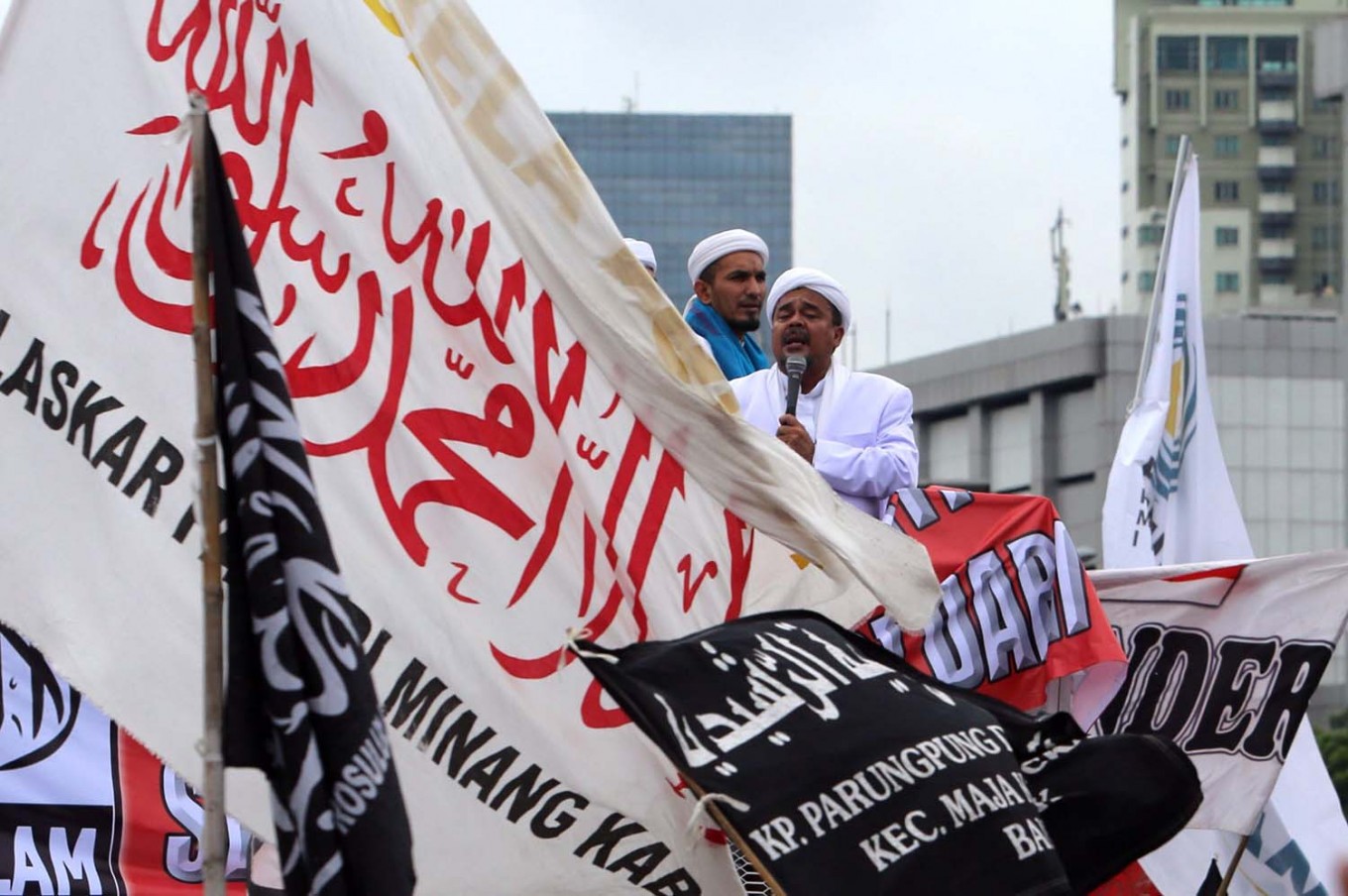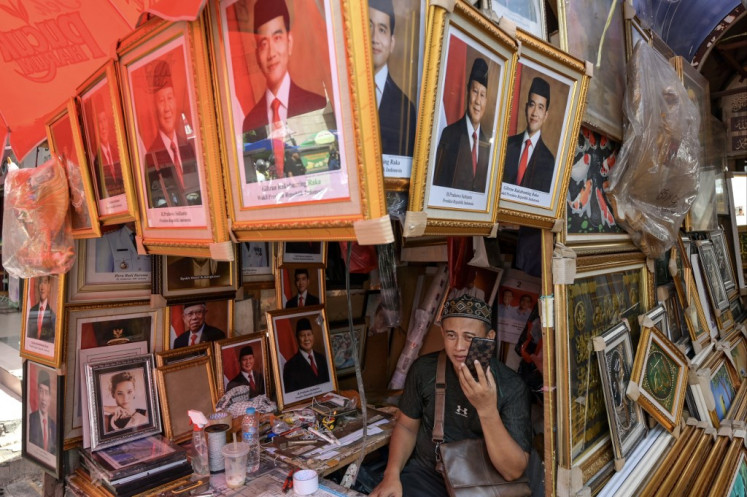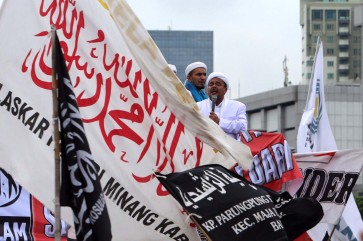Can political Islam support democratization?
Proponents of political Islam should learn that all citizens have their civil and political rights guaranteed by the Constitution regardless of ethnic and religious backgrounds.
Change Size
 Rizieq Shihab leads Thousands of Moslems participate in a rally in front of the Parliamentary Office in Jakarta, Tuesday, February 21, 2017. They asked the government to solve blasphemy case by Governor Basuki Tjahaja Purnama and detain the governor. (JP/Seto Wardhana)
Rizieq Shihab leads Thousands of Moslems participate in a rally in front of the Parliamentary Office in Jakarta, Tuesday, February 21, 2017. They asked the government to solve blasphemy case by Governor Basuki Tjahaja Purnama and detain the governor. (JP/Seto Wardhana)
T
he question of whether Islam is compatible with democracy has been discussed for decades. As shown in the Arab Spring movement across the Middle East, which started five years ago, Muslim populations in Asia and Africa have embraced democracy to fight discrimination, promote equality and social justice, as well as bargain for strategic political and economic positions.
Democratization has triggered more Islamic-inspired political rights and participation efforts — manifested in voter mobilization during elections, aspiration for Islamic-inspired legislation and rallies demanding accommodation for other Islamic socio-religious matters — especially in countries where aspirations of political Islam had been suppressed, such as Indonesia during the New Order.
However, to make democracy work, to keep it sustainable for the benefit of the whole nation, we need more than just political participation representing private and/or group/primordial interests. We need liberalism!
Almost two decades ago, the writer Fareed Zakaria warned us that instead of equality, happiness and prosperity, illiberal democracy would lead us to new forms of totalitarianism by depriving basic rights, especially those of minority groups.
While democracy basically means power is in the hands of the people, liberalism seeks to protect individual freedom and liberty, including free speech, assembly and owning property regardless of ethnic, class and religious backgrounds.
Like or not, the recent movements of political Islam — dubbed 411, 212, 112 and most recently 212 — have shown the spirited embrace of Muslims in a democracy.
The attack on Basuki “Ahok” Tjahaja Purnama with the Blasphemy Law followed by the ulemas’ edict for Jakartan Muslims not to vote for him in the Feb. 15 election due to his Chinese and Christian background were grounded in their Islamic-inspired political aspiration.

















